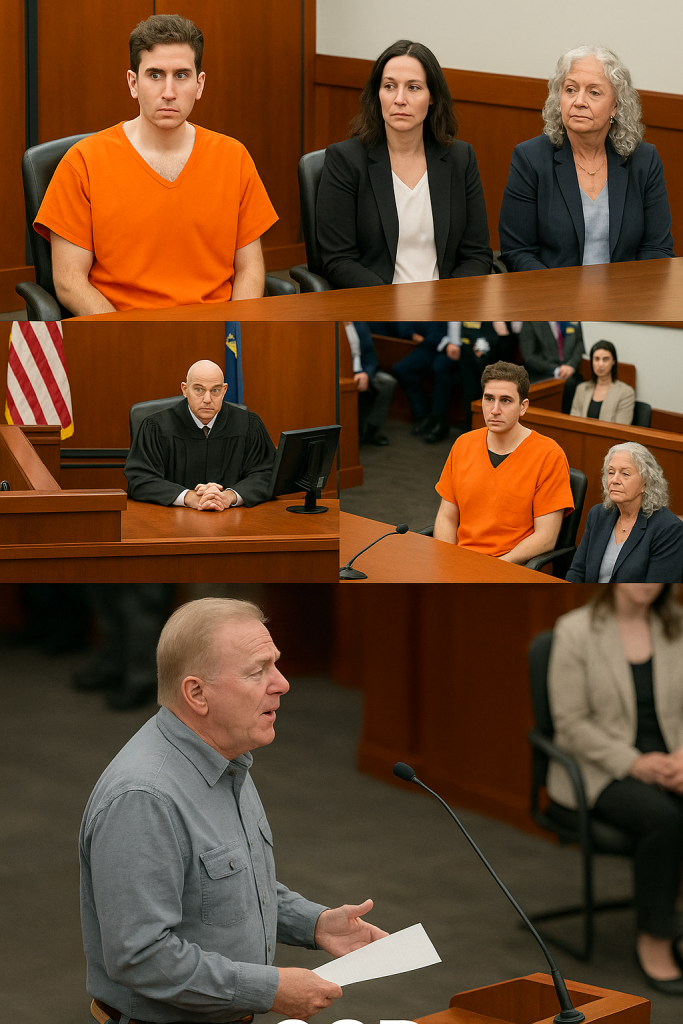In a raw and emotional address, Randy David, the stepfather of Xana Kernodle, delivered a searing message to Bryan Kohberger, the man convicted in connection with the brutal murders that shocked a community and gripped the nation. David’s words reveal the deep anguish and rage felt by the victims’ families as justice closes in on the accused.
David’s statement specifically targeted Kohberger, expressing a profound desire to confront him face-to-face: “I want to be out in the woods with you just so I can teach you about loss and pain.” This metaphorical “woods” represents a place of solitude and truth, where David believes Kohberger could truly understand the devastating impact of his actions.
His message further punctuated the emotional weight with a scathing assessment of Kohberger’s character. “I guarantee you, you are weak,” David said, underscoring the perceived cowardice behind the senseless violence committed. He did not mince words about the moral consequences he expects Kohberger to face, saying, “You’re going to go to hell… you’re evil, there’s no place for you in heaven.”
David’s passionate outburst included a vulnerable moment, revealing the tempest of emotions coursing through him. “I’m shaking because I want to reach out to you, but I hope you can feel my energy, ok? Go to hell.” It’s a statement that blends sorrow, rage, and a fractured desire— a mixture commonly shared by those left behind by violent crime.
This revelation comes as Bryan Kohberger faces continued legal scrutiny following charges related to multiple murders, including the death of Xana Kernodle. The trial and subsequent legal proceedings have drawn intense media attention, and the families of victims have found themselves in the spotlight not by choice, but by tragedy.
Randy David’s impassioned words provide a window into the collective grief felt by many affected by this case. His reference to teaching “loss and pain” touches on the universal experience of trauma that transcends the courtroom, highlighting the lasting human cost behind the headlines.
While the justice system methodically moves forward, statements such as David’s remind the public that at the center of this legal battle are real people grappling with unthinkable sorrow. His plea and condemnation serve as a testament not only to Xana Kernodle’s memory but also as a reflection of the enduring scars left on families by violent crime.
David and the Kernodle family’s grief echoes across communities, calling for compassion, justice, and perhaps, some measure of healing. As the legal process unfolds, their voices remind us all that behind every case stands a human story marked by loss, pain, and an unwavering demand for accountability.



